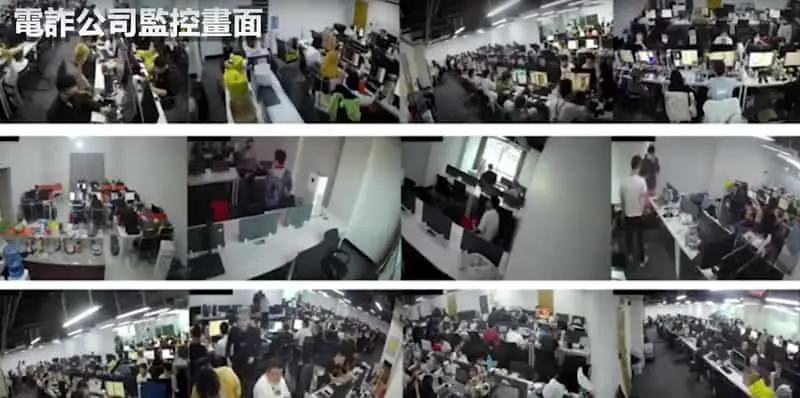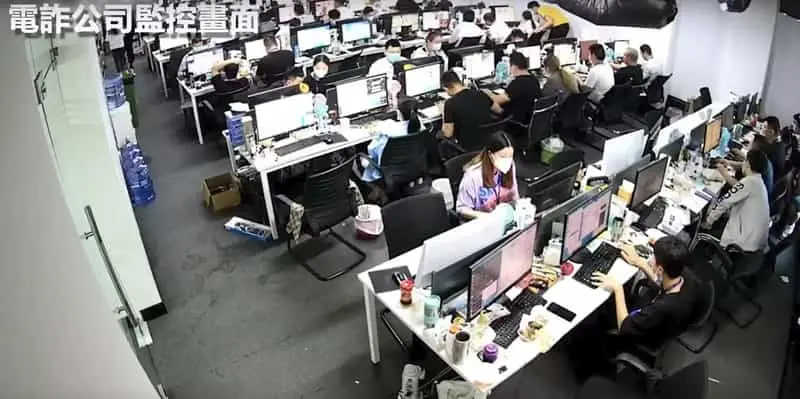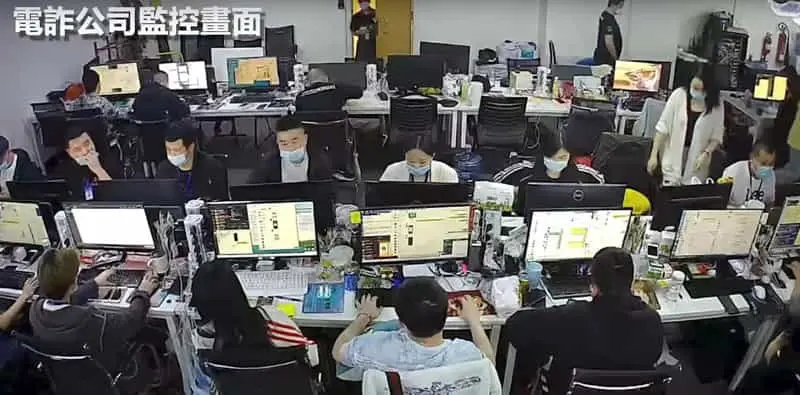What is the "pig-killing" scheme in telecom fraud?

Table of contents
"Piggy Bank" - this creepy name has become a synonym for the most brutal scam of the 21st century. It is not only a fraud, but also a psychological war that utilizes the deepest desire of human nature. In this war, love is no longer a synonym for sweetness, but the sharpest weapon; trust is no longer a bridge between people, but a trap leading to the abyss.
According to the latest statistics, of the 199 cases of "pig-killing platters" received by the Hong Kong Police in 2024, the victims suffered losses of nearly HK$180 million, an increase of nearly 30% over the same period last year. In Macau, in July 2024 alone, 18 people fell into this sweet trap, with a cumulative loss of MOP27.89 million. Behind these cold figures are countless broken hearts and trampled love dreams.

What's a pig-killing dish?
「Killing Pig PlateThe term "pig butchering scam" first appeared in Mainland China in 2017, which compares the entire fraud process to the process of raising and killing pigs. In this dark analogy, the victim is the "pig", the process of building emotional trust is the "raising of the pig", and the final harvest of the fraud is the "killing of the pig".
This type of fraud, also known as "Romance Scam", is a complex crime that combines love fraud and investment fraud. Through social media, dating software and other platforms, fraudsters approach victims with fictional perfect personas, and after building emotional trust, they lure them into making so-called "investments" and ultimately defrauding them of their money.

Origins Embryo
The "piggy bank" scam can be traced back many years, and initially, it did not take the sophisticated online form that it does today. In the early days, some criminals tried to exploit people's emotional needs and greed. They approached their targets through simple social occasions, such as gatherings and chance encounters on the street, and used false identities and stories to win their trust, then demanded money for various reasons. However, this approach is limited by the scope of geographical and interpersonal interactions, and the scope of influence and the amount of money involved in the scam is relatively limited.

Early Development
With the rise of the Internet, "pig-killing" began to shift to the network platform. Some criminals make use of emerging social networking sites and instant messaging tools, such as QQ and MSN in the early days, to add friends extensively. They establish contact with their victims by fabricating false identity information, such as claiming to be overseas students or successful businessmen. In the process of communication with the victim, gradually cultivate feelings, to obtain trust, they will be investment failure, illness, urgent need for money and other reasons to the victim to obtain money by deception. At this point, the basic formula of the "killing plate" has been initially formed, that is, through emotional inducement to gain trust, and then implement fraud.

Rampant in recent years
Around 2016, "pig killing" underwent a major change and showed explosive growth. On the one hand, the rapid development of social media and dating platforms and the sharp increase in the number of users have provided a wider space for "pig killing". Criminals have registered a large number of false accounts, using the platform's user-matching function to accurately locate singles and people with emotional needs. On the other hand, the fraudulent means continue to upgrade, the formation of a more systematic, professional gang mode of operation. They have carefully designed a detailed "pig farming" process and "pig killing" strategy, and even have a specialized team responsible for writing chat scripts and making false testimonials. In 2018, China vigorously cracked down on telecommunication fraud, criminals in order to evade the crackdown, one after another to fight outside the country, Southeast Asian countries have become the main gathering place of the "pig-killing plate" fraudsters. Outside the country, they use the relatively lax legal environment and cheap labor, expand the scale of the gang, strengthen training, making the "pig-killing plate" fraudulent means more cunning and covert. In recent years, with the development of artificial intelligence, big data and other technologies, "pig killing plate" criminals have also begun to make use of these technical means, such as AI face-switching technology to produce videos, through big data to analyze user preferences in order to develop a more targeted chat strategy, etc., to further improve the success rate of the fraud.

Graphical presentation of the development of the pig-killing tray
| years | Development Stage | Key Features |
|---|---|---|
| [Early year 1] | embryonic stage | Approaching the target through simple social occasions and demanding money under false identities and reasons |
| [Early years2] | early stage of growth | Utilizing early social networking sites and instant messaging tools to initially form an emotionally-inducing + money-scamming scheme |
| 2016 | transition period | Relying on social media and dating platforms, the scale of the crime has expanded and the means have been upgraded. |
| 2018 | decantation | Criminals switching to foreign countries, based in Southeast Asia, and becoming more specialized in syndicated crimes |
| [Recent years] | technologization period | Utilizing new technologies such as artificial intelligence and big data to enhance the stealthiness and success rate of frauds |

Operation Flow of Pig Killing Tray
Searching for prey (select "pig")
Criminals first collect citizens' personal information, such as name, age, occupation, marital status and contact details, through various channels. This information is traded at marked prices in the underground market, and the criminals analyze and screen the target group by purchasing this information. They mainly aim at the single, have a certain financial basis and desire love crowd, these people are often emotionally vulnerable, easy to strangers care and warmth to produce dependence. For example, the user information of dating platforms can be used to screen out eligible users, or the "people nearby" function of social software can be used to find targets.

Key Objective Characteristics:
- Age: 27-45, people in this age group usually have a certain amount of savings
- Emotional state: Single, Divorced or Emotionally Empty
- Financial Requirements: Stable income or some savings.
- Social Media Characteristics: Frequent posting of relationship-related content, demonstrating emotional needs.
Filtering Tips:
According to the fraud group's "teachable moments", they judge their targets based on their social media avatars:
- Those who use the "Landscape" and "Flower" header stickers are usually considered to be over 40-50 years old and have a certain amount of savings, and are labeled as "Premium Customers".
- Those who often post emotional quotes and life lessons are regarded as emotionally empty and easy to get at.
- Those who show photos of luxury goods and travel are considered to be better off.
Appearance Packaging:
- Stealing photos of handsome and beautiful people from the Internet, usually choosing images of outstanding temperament and exquisite life.
- Prepare lots of photos of your life, including work, travel, fitness, etc.
- Sometimes use AI technology to generate virtual images to avoid copyright issues

Perfect Mannequin Creation
Criminals will create various seemingly perfect personas according to different target groups. For victims who aspire to success and pursue a high quality of life, they may package themselves as accomplished entrepreneurs, high-income financial elites, and so on. For example, they claim to be the CEO of a famous company and often share photos of business activities and video clips of high-end forums to prove their identity. For victims who like art and literature and pursue romance, they will portray themselves as talented artists and romantic poets, and share their paintings and poems. By displaying these elaborate images and achievements, the victims' attention is attracted so that the victims unknowingly develop admiration and goodwill towards them.
- Occupation: doctors, engineers, corporate executives, architects and other professionals
- Background: returnee, single parent family, successful in career but frustrated in relationships
- Hobbies: fitness, reading, cooking, traveling, creating a positive image

Networking ("bridge building")
Once the target is identified, the criminals start to take the initiative to establish contact with the victim. On the dating platform, they will carefully compile attractive personal information, displaying a quality image, such as high academic qualifications, high income, outstanding appearance, etc., and attaching carefully processed photos. Then, through the chat function of the platform, they will send friend application and greeting messages to the victims, with common opening remarks such as "What a coincidence, meeting you on this platform, I feel very fortunate", etc., in an attempt to break the sense of unfamiliarity and arouse the interest of the victims. On social software, the common interests may be used as an entry point, such as in the game group, the exchange of game tips as the reason to add the victim as a friend.

Cultivating feelings (raising "pigs")
This is the most crucial part of the "killing plate". The criminals will start a long and in-depth communication with the victims based on the chat scripts prepared in advance. In the course of communication, they show a high degree of enthusiasm and concern, and greet them regularly every day, such as "the weather is not good today, remember to put on more clothes", "don't be too tired at work, take care of yourself", etc., so as to make the victims feel valued and cared for. They will also actively seek common interests with the victims. For example, if the victim likes to read books, the offenders will share their own insights on a certain book, so as to create a feeling of mutual compatibility. In addition, criminals will outline to the victim a beautiful future blueprint, such as "we can travel together in the future, to see the most beautiful scenery," "when we are together, to buy a set of our house, decorated to your liking," and so on, so that the victim of the The victim is full of expectations for the future, and then fall deeper and deeper into the emotion, and gradually build up a deep trust in the criminals.

The Emotional Offensive
- intensive care: From the outset, criminals launch an intensive care attack on their victims. Every morning and evening, they greet the victims at regular intervals and show concern for their daily chores, such as whether they have eaten breakfast, whether their work is going well, and whether they have slept well at night, and so on. When the victim encounters difficulties, he or she is quick to offer comfort and encouragement, giving the victim an unprecedented feeling of warmth. For example, when the victim mentions that she has encountered setbacks at work, the offender will immediately reply, "Don't be sad, you are so good, this is only temporary, I believe you will surely be able to solve it", and will continue to keep an eye on the progress of the matter and give "advice".
- Emotional resonance: It is a common tactic for criminals to actively seek emotional resonance with their victims. They will listen carefully to the victim's story and tap into their similar experiences or feelings, so as to bring them closer to the victim. For example, if the victim talks about an unforgettable time in a certain city, and the offender happens to be "familiar" with that city, he or she will share his or her own "fond memories" there, making the victim feel that he or she is in touch with him or her.
- Visions of the Future: Painting a rosy picture of the future to the victim is an important step in getting the victim into an emotional trap. The offender will outline in detail the scene of life after the two people together, including the destination of the trip together, the idea of the future family, and so on. For example, they plan to travel to Europe on a future vacation, visit famous sights, and taste the local cuisine; they talk about how many children they will have in the future and how they will educate their children, etc., so that the victim will be full of anticipation for the future, and then become more reliant on the criminals.

Daily Care:
- Good morning, good night, and never a break.
- Care about your work life and give timely advice
- Remember special days such as birthdays and anniversaries
- Thoughtfulness: will remember every important date
- Career-minded: Serious and motivated.
- Exclusive: Longing for true love, willing to give for love

Emotional resonance:
- Sharing "personal experiences" to find common ground
- Demonstrates planning and vision for the future
- Reveal your vulnerability at the right time to stimulate the desire to protect.

confidence building:
- Offer to share "personal information", including identity cards, work permits, etc. (of course, they are all forged)
- Introducing "family and friends" to the victim (who are actually partners)
- Commit to the future, talk about marriage, and paint a beautiful life.
This phase usually lasts 2-4 weeks and the fraudster adjusts the tempo according to the victim's reaction to ensure that the victim trusts him/her completely.

Introducing traps (Preparing to "kill the pig")
When the relationship with the victim reaches a certain level, criminals think that the time is ripe, then start to introduce traps. They usually recommend to the victim on the grounds that they have a special investment channel or that they have discovered an investment program that is guaranteed to be profitable. For example, they claim to have inside information on a virtual currency trading platform, or expert guidance on an unknown stock investment platform that can easily yield high returns. In order to increase credibility, criminals may send some false profit screenshots, platform transaction records, etc. to the victim, and even let the victim first into a small investment to test the water, and at the beginning to give the victim some small rebates, so that the victim to taste the "sweetness", and further induce the victim to increase investment.

Step by Step: Psychological Tactics from Small to Large
Once the victim starts investing, the psychological warfare escalates:
First Round: A Little Trial
- Invest $1,000-5,000 and get $100-300 in revenue
- Successful realization, building initial trust
- Emphasis on "Early Investment, Early Return"
Second round: appropriate increase
- Suggested investment is $10-50,000 with a promise of higher returns
- Showing more "profit" to stimulate greed
- Start mentioning "limited time opportunities" to create a sense of urgency.
Round 3: Big money incentives
- Suggested investment of $100,000 or more, claiming it's a "chance to change your life."
- Promise to buy a house and a car and realize financial freedom.
- Emotional kidnapping: "What's this investment in our future?"

7 Ways to Counteract Piglet Suspicion or Resistance
Hands-on Demonstration:
- Showing victims their accounts on "investment platforms" that show substantial profits
- Share your own "investment insights" and "successes"
- Claiming to have discovered a "technical vulnerability" or "inside information" about the platforms

Small amount of water test method:
- Victims are encouraged to try small amounts, usually starting with $1,000-$5,000.
- Ensure that victims are able to successfully withdraw and build confidence
- Emphasis on "no loss, no gain", "zero risk".

Emotional Kidnapping:
- "I love you so much, how could I hurt you?"
- "We're all in this together. I'm making money for our future."
- "Don't you trust me? You don't even want to try for this kind of money?"

Future Planning Act:
- "I want to make more money for our future."
- "I want to give you a better life, so I've been looking into investments."

The Trust Test:
- "Don't you trust me? How could I hurt you?"
- "After all I've done for you, you doubt me?"
- "Is our relationship not worth this much?"

Future Kidnapping:
- "When we get married, all this money will be ours."
- "I'm doing this for our future."
- "If you don't help me now, how can we live together?"

Threatening to break up:
- "If you don't believe me, let's break up."
- "I see our feelings are so fragile."
- "I'm so disappointed in you."

Fraudulent methods
Work Related Laws:
- "The company is meeting today to discuss a new project that will make a lot of money."
- "Our group is planning to invest in a new area where our internal staff can participate."
Incidental Discovery Method:
- "I accidentally discovered a loophole in an investment platform."
- "A friend introduced me to a lucrative investment program."
- High Yield Commitment: When criminals recommend investment projects to victims, they often promise super-high yields, such as monthly yields up to 20% or even higher, far beyond the normal level of investment returns. They will use "inside information" "special channels" and other reasons to make the victim believe that this is a rare opportunity. For example, they say they have a friend working in a financial institution, access to information about a stock that is about to rise, as long as they follow the operation will be able to easily make a lot of money.
- Virtual Platform Showcase: In order to convince victims of the authenticity of their investments, criminals will create fake investment platforms. These platforms mimic formal financial investment platforms from the interface design to the display of functions, and even have false trading data and market trends. Victims will be misled into believing that their investment is increasing in value as they see the profit figures on the platform growing. For example, on the fake virtual currency trading platform, the K-line chart shows that the price of the currency has been climbing, making the victim feel that he or she has seized the opportunity to make a lot of money.
- Small Rebate Temptation: After the victim's initial investment, the criminal will give a small rebate within a short period of time, such as investing $1,000 and quickly returning a profit of $150. This allows the victim to taste the sweetness, that the investment can indeed be profitable, and thus relax their vigilance, and then increase the amount of investment. Criminals take advantage of the victim's greed and step by step lure the victim into a bigger trap.

Claiming money in emergencies
- Sudden illness: Criminals will fabricate stories about themselves or their family members suffering from sudden and serious illnesses in order to demand medical fees from their victims. They will forge hospital diagnostic certificates, bills, etc., and even through AI technology to synthesize video, so that the victim can see the "patient" lying in the hospital bed, in order to increase the authenticity of the story. For example, said his mother suddenly suffered a serious illness, need immediate surgery, surgery costs up to hundreds of thousands of dollars, they are not enough, I hope the victim can help.
- family history of death(a) The victims will seek help from them on the grounds that their families have suffered major changes, such as their businesses have gone bankrupt or their homes have been mortgaged, etc. They will describe in detail what has happened to them. They will describe in detail what happened and show great anxiety and despair, so that out of sympathy and emotional factors, the victim will willingly give money to help them. For example, they may say that their company is on the verge of closing down due to a problem with a large order, and they need money to make ends meet, or else they will lose all their money.
- accidentThe victim may also be asked for money by fabricating accidents, such as being in a car accident and needing compensation, or being mistakenly arrested by the police and needing bail money, and so on. By creating these emergencies, the victim's sympathy and feelings for himself or herself are utilized to achieve the goal of obtaining money by deception.
Once the victim is induced to invest a large amount of money, the criminals will find various reasons to prevent the victim from withdrawing the money.

Technical fault method:
- "The system is under maintenance and cannot be accessed at the moment."
- "card information is incorrect and needs to be revalidated."
- "Network delay, please try again later."

Rule Restriction Act:
- "A certain number of transactions must be completed in order to withdraw cash."
- "Account level is not enough, need to upgrade VIP".
- "Withdrawal is subject to security deposit/taxes".

Operational Error Method:
- "Your account has been frozen due to an operational error."
- "You need to recharge the same amount to unfreeze."
- "It's the rules of the platform. There's nothing I can do."

Emotional Blackmail: The Final Psychological Offensive
Total Disappearance: A Cruel Ending
When the victim can't get any more money, or begins to have strong suspicions, the fraudster will:
drift apart:
- The replies are getting slower and slower.
- I'm getting cold feet.
- Start making all kinds of excuses to avoid communication.

Thoroughly Disappearing:
- Block all contact information.
- Investment platform cannot be logged in
- All the promises are gone.

The Final Injury:
- Some scammers have a final humiliation before they disappear.
- "You deserve to be lied to. You're so stupid."
- "Thanks for the money. I'll enjoy it."

The Art and Science of Psychological Manipulation
"The Piggy Bank scam is so successful because it cleverly utilizes a number of psychological principles:
Creating Security Dependencies:
- Provide stable emotional support
- Always "on" when the victim needs it.
- Giving Unconditional Acceptance and Care

Triggers Attachment Anxiety:
- Create uncertainty with a timely "escape"
- Exploit the victim's fear of losing the relationship
- Creating 'uniqueness' and 'irreplaceability' in relationships

Cognitively biased manipulation
Confirmation bias:
- Encourage victims to focus only on messages that support the relationship
- Ignoring or interpreting suspicious signs in a reasonable manner
- Reinforce the belief that this is true love.
Sunk Cost Fallacy:
- The victim is investing more and more time, money, and emotion.
- Utilizing the "I've given so much, I can't give up" mentality.
- Seeing more commitment as a way of "proving love."
Authority Bias:
- Demonstrate professional knowledge and successful image
- Use of "expert" status to enhance credibility
- Builds a sense of authority by helping others

Emotional Kidnapping Mechanisms
Chemical Kidnapping:
- Promote dopamine secretion through sweet words and intimate interactions
- Creates a sense of love, which makes the brain dependent.
- Intermittent rewards that reinforce addictive behavior
social isolation:
- Encourage victims to reduce contact with friends and family
- Create a sense of "us against the world".
- It makes the victim more dependent on the relationship.

Upgrading of technical means
Application of AI Deep-Fake Technology
Modern "piggy bank" scams are already heavily utilizing AI technology:
Face Changing Technology:
- Video calls using Deepfake technology
- Capture photos from the victim's social media to create a moving image
- Create a sense of realism with ambient sound effects
speech synthesis:
- Imitate sounds using AI speech synthesis
- Real-time voice conversation is possible
- It can even mimic the voice of a specific character
Text Generation:
- Interact 24/7 with AI Chatbots
- Adapt the chatting style to the victim's personality
- We've been in contact with multiple victims.

Big Data Analytics
Personal Portrait:
- Analyze the victim's interests, personality, and financial situation through social media.
- Customized and Personalized Fraud Schemes
- Choosing the most appropriate "persona" and dialogue
Behavioral Forecasting:
- Predicting Victims' Reactions in Different Scenarios
- Choosing the best time to commit fraud
- Adjusting fraud pacing and tactics

Psychological profiling of victims
The Emotionally Empty:
- Long-term singles or traumatized by relationships
- Strong desire for love
- Smaller social circle and lack of emotional support
a highly educated person:
- Better educated but less emotionally experienced
- Overconfidence that you won't be cheated.
- Getting used to analyzing relationship problems rationally

Economic Independents:
- Have a stable income and some savings
- Economic independence and decision-making autonomy
- Knowledge and interest in investment
The damage caused by "piggy bank" scams goes far beyond financial loss:
Emotional Trauma:
- Lost faith in love and humanity.
- Creates serious self-doubt
- Slipping into chronic depression and anxiety

Social Barriers:
- Fear of forming close relationships with people
- Fear of online dating
- The social circle shrinks further
Economic Pressure:
- Possibility of huge debts
- Disruption of normal life and work
- Some of them even lost their homes.
Self-recognition distortion:
- It creates a strong sense of shame.
- Impaired sense of self-worth
- Some people develop suicidal tendencies.

Case Study
Case 1: Ms. Li's encounter
Ms. Li, aged 35, is single and runs a small-scale clothing store. Due to her busy schedule, she has not been able to find a suitable partner. So, she registered her account on a well-known dating platform, hoping to find her true love. One day, Ms. Li received a friend request from a man named "Zhang Jie". Zhang Jie's profile shows that he is a senior executive of a technology company, successful in his career and handsome in appearance. In the communication, Zhang Jie showed great passion and concern for Ms. Li, greeting her every day and sharing the little things in her life. He also often praised Ms. Li for her successful career and for being a very attractive woman, which warmed Ms. Li's heart.

With the deepening of the exchange, Zhang Jie began to tell Ms. Li about his investment experience, saying that he had invested in stocks and virtual currency through a website called "XX International Investment Platform" under the guidance of a professional investment consultant, and had obtained a high return. In order to convince Ms. Li, he also sent some false profit screenshots and platform transaction records. At first, Ms. Li didn't believe him easily, but Zhang Jie kept assuring her that the investment was very safe and reliable, and promised that if Ms. Li invested in it, he could let his own investment consultant give her guidance. Under Zhang Jie's repeated persuasion, Ms. Li decided to invest 5,000 yuan to test the water. Unexpectedly, after a few days, she really received the platform to return the 800 yuan profit, which makes Ms. Li's confidence in this investment platform greatly increased.

However, when she was ready to put the profit and the principal together, she found that the platform prompted the inability to withdraw cash, customer service said that you need to pay the tax of 10% before you can handle the withdrawal procedure. Ms. Li contacted Zhang Jie, Zhang Jie also urged her to hurry to pay the tax, otherwise the previous investment will be lost. Although Ms. Li was a little suspicious, but out of the trust of Zhang Jie, she still transferred the money to pay 20,000 dollars of tax. However, after paying the tax, the platform still could not be withdrawn. At this time, Ms. Li contacted Zhang Jie again and found that the other party had already pulled the plug on her and the platform could not be opened. Ms. Li then realized

Case 2: Elite Women's $30 Million Nightmare
Case background
In 2024, a 52-year-old real estate businesswoman in Hong Kong suffered a "piggy bank" scam in the process of renting out her property and ended up losing over HK$31 million.
Fraudulent process
Step 1: Meet by chance
- Fraudster expressed interest in his rental property
- Gradually build a relationship through text messaging
- From Renting to Personal Life
Step 2: Love is in the air
- The crooks appear to be successful gentlemen.
- You're always asking me how I'm doing, and you're always asking me how I'm doing.
- Sharing of "personal experiences", including marital failure, career success, etc.
Step 3: Invest in Seduction
- Claims to have inside information on investment and lucrative profits
- Demonstrate your rich earnings on the Investment Platform
- Encourage victims to try a small amount and make a real profit

Step 4: Bloody Harvest
- Luring victims into investing HK$20 million in cash
- And induced him to invest $11 million worth of virtual money.
- When the victim tries to cash out, all kinds of barriers are put in place.
- In the end, the scammer disappears and you lose all your money.
Case Study
This case is typical:
- Victims are the elite high schoolers, showing that the "pig-killing platters" do not discriminate between people.
- The huge amount of money involved shows the greed of the fraudsters.
- Combines elements of real estate, investment, virtual money and more.

Case 3: The $350,000 Trap of AI Face Swapping
Case background
Ms. Li, a 35-year-old white-collar woman living alone, met a man in the same city through dating software and was eventually cheated out of 350,000 yuan.
Virtual Positioning:
- The fraudster used virtual location technology to show that he was in the same city as Ms. Li.
- Claiming to work in the neighborhood to enhance the sense of reality
AI Face Change Technology:
- Photos taken from Ms. Lee's circle of friends
- Generating Motion Images with Deepfake Technology
- AI synthesized faces are displayed when video calls are made.

Ambient Sound:
- MTR announcement in the background during video.
- Office Keyboard Sounds
- Creating a realistic work environment
Carefully designed "chance encounters:
- According to Ms. Lee's location information.
- Creating a chance encounter at a coffee shop in the "neighborhood".
- One more step to lower your guard.
Fraudulent process
- Fixed time video call every night
- Gradually building emotional trust
- Inducement to invest in 'digital currency platforms'
- After investing 350,000 dollars, the other party suddenly disappeared.

Case 4: Psychological Warfare of Reversing the "Killing Pan"
Case Features
This is a case of the reverse operation, where the fraudster first gives the victim the benefit of the doubt and lowers his or her guard.
Step 1: Establish a business relationship
- Ms. Wong is a micro-businesswoman, and the crooks are posing as "wholesalers"
- For normal purchases, we transfer a few hundred dollars more each time as a "shipping subsidy."
Step 2: Build trust
- Never defaults on payments and refers "clients".
- Ms. Wong thinks she's got a "big client".
- The liar presents a generous and trustworthy image
Step 3: Reverse Seduction
- The crooks transferred $5,000 to Ms. Wang, saying it was a "meet-and-greet" gift.
- Claiming to be a "liquor agent" and needing to stock up with advance funds.
- Commitment to "50/50 Profit Sharing"

Step 4: Bloody Harvest
- Ms. Wong mortgaged her property for a loan of 500,000 dollars.
- After transferring the money to the scammer, he disappeared.
psychoanalysis
This kind of reverse "killing plate" takes advantage of the psychological weakness of human beings:
- the principle of reciprocity: The other party gives the benefit of the doubt, creating a sense of obligation to reciprocate.
- Trust transfer: Integrity in Small Transactions, Transferred to Large Investments
- Loss of disgust: Fear of losing future revenues from "large customers"

In-depth analysis of the fraud industry chain
Organizational Structure: Pyramid Management of Transnational Criminal Groups
Level 1: Gold Master (Boss)
- Provision of funds and venues
- Formulation of overall strategies and objectives
- Often hidden offshore and difficult to trace
Level 2: Management
- Responsible for daily operation management
- Recruitment and training of fraudsters
- Allocation of tasks and assessment of performance

Level 3: Technical Team
- Building and maintaining fraud platforms
- Developing fraudulent apps and websites
- Provide technical support, e.g. AI face-swap, etc.
Level 4: Implementation Team
- Frontline staff in direct contact with victims
- They are divided into "Pig Raising Group", "Pig Setting Group" and "Pig Killing Group".
- Receive a commission based on performance

Professional division of labor
Script Writing Team:
- Research on the characteristics of different population groups
- Scripting Targeted Frauds
- Constantly updating and optimizing the dialog
Material Production Team:
- Collection and production of false photographs
- Producing fake documents, fake screenshots
- Maintenance Material Library
Training Department:
- Systematic training for new employees
- Teaching psychology and chatting skills
- Simulated Battle Exercise

Technical Support: Comprehensive Application of Black Technology
platform construction
False Investment Platform:
- Appearance mimics a formal financial platform
- Real-time market and profit/loss can be displayed
- You can modify the data in the backend
chat tool:
- Developing specialized chat software
- You can falsify location, time, etc.
- Supports voice and video calls

Payment System:
- Connecting to third-party payment platforms
- Rapid transfer and diversification of funds
- Avoiding Regulatory Tracking
AI Technology Applications
Deepfake:
- AI Face Change Technology for Video Calls
- Voice synthesis to mimic specific sounds
- Text generation, auto-reply messages
Big Data Analytics:
- Analyzing Victim Behavior Patterns
- Predicting the best time to commit fraud
- Personalized Fraud Schemes
Machine Learning:
- Continuous optimization of fraudulent techniques
- Increase fraud success rate
- Automatic identification of high-value targets

Training System: Specialized Fraud Education
Orientation
New employees are required to undergo systematic training, including:
Psychology Program:
- Learn basic psychological principles
- Understanding the psychological characteristics of different groups of people
- Mastering Emotional Manipulation Skills
Technical Training:
- Learn to use various fraud tools
- Acquire basic hacking skills
- Familiar with the platform operation process
Dictionary Training:
- Memorize standard fraudulent techniques.
- Practice for every situation
- Improve communication skills

Practical Exercise
Simulation Training:
- Simulate real-life fraud scenarios with coworkers
- Practice responding to the victim's reactions
- Constantly refining fraud techniques
Case Study:
- Examining Successes and Failures
- Lessons Learned
- Improved Fraud Tactics
Performance Appraisal:
- Commission based on the amount of fraud
- Implementation of a final elimination system
- Encourage internal competition

Funding: Complex Money Laundering Networks
Transfer of Funds
Multi-Level Transfer:
- Victims' funds are first transferred to a primary account.
- Rapidly dispersed to multiple secondary accounts
- Continue to diversify into more small accounts
Virtual Money Laundering:
- Converting funds to virtual currencies such as Bitcoin
- Hiding the source through multiple transactions
- Eventually cashed out or transferred offshore
Allocation of Funds
internal partially matched:
- Gold owner receives maximum share (usually 40-50%)
- Management earns commission (10-20%)
- Merit-based bonuses for first-line staff (20-30%)
cost expenditure:
- Venue rental and utilities
- Technical maintenance and equipment upgrades
- Bribery and public relations expenses

Preventive Strategies and Countermeasures
Key Signs to Recognize a "Piggy Bank"
Early Warning Signal
Over-perfect persona:
- Outstanding appearance, successful career, perfect personality
- Fine life, wide range of interests, no bad habits
- I happen to share your interests and values.
Rapidly Progressing Relationships:
- It's not long before you express your love.
- Frequent use of terms such as "soul mate" and "true love".
- Short time to talk about marriage and plan for the future
Deliberate Distance Keeping:
- Always looking for an excuse not to show up.
- Dim or short duration of the video call.
- Refusal to provide truthful personal information

Interim Danger Signal
Talking about money investment:
- Start talking about investment and finance
- Demonstrate strong investment returns
- References to "inside information" or "technical vulnerabilities"
Emotional Kidnapping:
- "We are one. What's mine is yours."
- "If you don't help me, you don't believe in our relationship."
- "It's for our future."
Creating a sense of urgency:
- Emphasis on "time-limited opportunities
- Claiming, "If you miss it, you won't get it."
- Emotional pressure for an immediate decision

Post-periodic SOS
Unavailable:
- The platform uses various reasons to prevent withdrawals
- Requirement to pay additional fees such as security deposits, taxes, etc.
- Poor customer service and shifting of blame
Attitude Change:
- From considerate to cold and distant.
- Start blaming the victim for his "mistrust."
- Threatening the victim with a breakup to keep him engaged.

Personal Defense Strategies
Maintaining rationality:
- Don't believe in "perfect lovers" on the Internet.
- Be wary of relationships that move too fast
- Remember: True love takes time to understand.
Privacy:
- Don't disclose personal information easily
- Be cautious in posting social media updates
- Protect your photo and location information
Independent Judgment:
- Don't lose sight of reason because of emotion.
- Seek advice from friends and family
- Trust your instincts. If it doesn't feel right, there's probably something wrong.

Video Verification:
- Requests for prolonged video calls
- Getting the other person to do a specific action, such as blinking, turning their head, etc.
- Note the naturalness of the details in the video
Information Verification:
- Verify the identity of the other party through various channels
- Use the image search function to see if a photo has been misappropriated
- Requirement to provide specific proof of work and life
investment alert:
- Don't believe in any "safe" investment.
- Do not transfer funds to unfamiliar platforms or individuals
- Seek professional advice before investing

What to do if you have been scammed
Preservation of evidence:
- Save all chats
- Take a screenshot to save your transfer history
- Collecting all information from the other party
Stop Contact:
- Immediately cease all contact with the scammer.
- Don't try to "rationalize" or "redeem" yourself.
- Block all contact information of the other party
Timely Alarm:
- Report the case to the police immediately
- Provide detailed evidential materials
- Co-operation with Police Investigation

Acceptance of Reality:
- Admit that you've been lied to.
- Don't beat yourself up. Remember, it's not your fault.
- Forgive yourself. Everyone can be a victim.
Seeking Support:
- Talking to friends and family
- Seek professional counseling
- Join a victim support group
rebuild one's life:
- Focus on work and life
- Cultivate new hobbies and interests
- Re-establishing Trust in Humanity

Building a social defense system
Strengthening of legislation:
- Improvement of relevant laws and regulations
- Increasing penalties for fraudulent crimes
- Establishment of a transnational cooperation mechanism
Enforcement efforts:
- Strengthening the fight against fraud syndicates
- Increased detection rate
- Increase the recovery of stolen goods

Platform Responsibility:
- Social Platforms Enhance User Authentication
- Establishment of a fraud alert system
- Timely Blocking of Suspicious Accounts
Technical means:
- Developing fraud identification tools
- Establishment of a blacklist database
- Strengthening Regulation of AI Technology
Education for All (EFA):
- Launching of anti-fraud publicity campaigns
- Incorporating anti-fraud education into the school curriculum
- Raising the awareness of the entire population on prevention
focus group:
- Specialized Education for Vulnerable Groups
- Conducting talks and training in the community
- Provide professional consulting services

Conclusion: Between Love and Deception
The scary thing about the "Piggy Bank" scam is not only that it cheats people out of their money, but also that it tramples on people's faith in love. In this digital age, when technological advances are used for deception, and when human sincerity is used as a weapon, how can we protect the innocence of our hearts?
Looking back at the entire operation mechanism of the "pig killing plate", we see a sophisticated operation of the criminal industry chain. From the creation of a persona to psychological manipulation, from the application of technology to the operation of funds, each link has been carefully designed. This is no longer a general network fraud, but a precise attack on the weaknesses of human nature.
However, while exposing such darkness, we should also remember that true love still exists and sincere feelings are always worth cherishing. The emergence of the "Pig Killing Plate" reminds us that we have to be rational in the pursuit of love, but it doesn't mean that we have to lose faith in love.

For everyone who's looking for love.:
- Please keep an open mind, but stay alert!
- Believe in love, but not in miracles.
- Give credit where credit is due, but set boundaries
- Seek happiness, but protect yourself.
For victims who have already been injured.:
- It's not your fault. Don't blame yourself.
- You're not alone. There are people who want to help you.
- Life goes on, and the future is still bright
- Learn from your experiences, but don't lose hope.

For society as a whole:
- We need better legal protection.
- We need more advanced technology for prevention and control.
- We need more comprehensive education publicity
- We need more inclusive social support
In this world of uncertainty, love is still one of our most precious pursuits. Let us not forget to be kind while remaining vigilant; not to refuse to give while protecting ourselves; and to uphold integrity while facing deception.
Because only in this way can we find our own happiness in this complicated world. Only in this way can we make the tragedy of the "Pig Killing Plate" not to be repeated, so that every sincere relationship can be cherished, so that every heart in search of love can safely reach the other shore. May the world be free of fraud, and may true love last forever.







